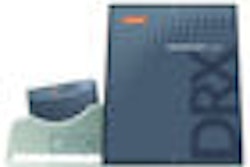Breast MRI screening is recommended for women who have the following:
- A BRCA1 or BRCA2 mutation
- A first-degree relative who has a BRCA1 or BRCA2 mutation
- A lifetime risk of 20% to 25% or greater, as defined by BRCAPRO or other models that are largely dependent on family history
- A history of chest radiation between ages 10 and 30
- Li-Fraumeni syndrome and first-degree relatives
- Cowden and Bannayan-Riley-Ruvalcaba syndromes and first-degree relatives
Breast MRI success stories
In one week, we had two women, both of whom were BRCA-positive. One was in her early 40s and the other in her early 50s. Both were asymptomatic. Each had a negative mammogram and a negative ultrasound. But breast MRIs revealed a 1-cm lesion that was an invasive ductal carcinoma in one patient and a 3- to 4-cm invasive lobular cancer in the other patient. Without breast MRI, both invasive cancers would have gone undetected for another 12 months.
— Dr. Daisy Frau-Reyna,
Memorial Health System,
Hollywood, FL

A patient with a nipple retraction was referred by a breast surgeon for breast MRI screening. The patient had had a mammogram in another facility six months previously with negative results, and at her insistence, an ultrasound was performed, also with negative results. When the retraction didn't change, she consulted with a surgeon. If she had come to our center for her mammogram, we would have recommended a breast MRI because this was a physical change that merited investigation. The breast MRI revealed a large speculated mass. A directed ultrasound and a biopsy were subsequently performed.
— Dr. Stephen Feig,
Aurora Breast MRI of Orange County,
Orange, CA
I still vividly remember the first time that I identified a 4-mm cancer that was otherwise occult.
One patient, whose daughter was diagnosed with breast cancer when she was in her 30s, came to me for a consultation about the breast pain that she had and wanted to confirm that her breast tissue was dense. Ultimately, the MRI showed that her painful left breast was normal but her right breast had a 5-mm invasive ductal carcinoma. Her recent mammogram had been negative. She was able to have a lumpectomy, and there was no nodal involvement.
Another patient was referred to me whose mammogram had revealed multiple calcifications. An ultrasound was performed which was very complex with cystic nodules. An ultrasound-directed biopsy was performed, and she was advised that she had nothing to worry about. Because of discordant findings and the difficulties of her exams, she was referred to our center for a breast MRI. We saw an abnormality in this exam, and with an MRI-guided biopsy, discovered a lobular cancer. All the patient's nodes were negative. This patient was so appreciative that after her recovery from surgery and adjuvant treatment, she drove over two hours from her home to personally thank us.
— Dr. Dan White,
Mount Carmel Imaging Center,
Columbus, OH



















